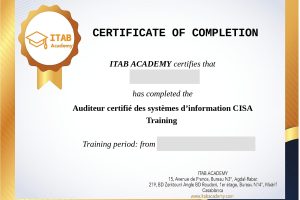**Choosing the Right Business School: A Guide to Success in Higher Education**
Selecting the right business school is a crucial decision that can significantly impact your academic and professional journey. With numerous options available worldwide, it’s essential to carefully evaluate factors such as reputation, curriculum, faculty, facilities, and career opportunities. Here’s a comprehensive guide to help you navigate the process of choosing the perfect business school for your educational and career goals.
**1. Define Your Goals:**
Before exploring business schools, take the time to clarify your academic and career objectives. Determine the type of degree you’re seeking (e.g., Bachelor’s, Master’s, MBA) and your desired specialization (e.g., finance, marketing, entrepreneurship). Consider your long-term career aspirations and how a business education can help you achieve them.
**2. Research Accredited Institutions:**
Start your search by identifying accredited business schools recognized for their high-quality education and reputable programs. Look for accreditation from respected organizations such as AACSB (Association to Advance Collegiate Schools of Business), AMBA (Association of MBAs), or EQUIS (European Quality Improvement System). Accreditation ensures that the institution meets rigorous academic standards and provides valuable credentials.
**3. Evaluate Program Rankings and Reputation:**
Explore various rankings and reports to assess the reputation and performance of different business schools. While rankings should not be the sole determining factor, they can offer insights into factors such as faculty expertise, research output, student satisfaction, and alumni success. Consider factors that are important to you, such as global reputation, industry connections, or regional strengths.
**4. Review Curriculum and Specializations:**
Examine the curriculum and available specializations offered by each business school. Ensure that the program aligns with your academic interests and career goals. Look for opportunities to gain practical experience through internships, case competitions, consulting projects, or study abroad programs. A diverse and flexible curriculum allows you to tailor your education to suit your unique aspirations.
**5. Assess Faculty Expertise and Industry Connections:**
Faculty expertise plays a crucial role in the quality of education offered by a business school. Research the qualifications, experience, and research interests of faculty members within your desired specialization. Consider whether the faculty are actively engaged in industry partnerships, research collaborations, or consulting projects that provide real-world insights and networking opportunities for students.
**6. Consider Campus Culture and Resources:**
Evaluate the campus culture, student life, and support services available at each business school. Visit campuses or attend virtual information sessions to get a sense of the environment and facilities. Consider factors such as class sizes, student diversity, extracurricular activities, career services, and alumni networks. A supportive and vibrant campus community can enhance your overall learning experience and networking opportunities.
**7. Investigate Career Services and Placement Opportunities:**
Investigate the career services and placement support provided by each business school. Look for institutions with dedicated career centers, internship programs, networking events, and alumni mentoring initiatives. Research placement statistics, employer partnerships, and recruitment activities to assess the school’s track record in helping students secure internships and job opportunities in their desired field.
**8. Consider Financial Considerations and Scholarships:**
Evaluate the cost of tuition, fees, living expenses, and financial aid options when comparing business schools. Explore scholarship opportunities, grants, assistantships, and tuition assistance programs available to eligible students. Consider the return on investment (ROI) of your education and weigh the financial implications against the potential career benefits and earning potential.
In conclusion, choosing the right business school requires thorough research, self-reflection, and careful consideration of various factors. By defining your goals, researching accredited institutions, evaluating program offerings, assessing faculty expertise, considering campus culture, investigating career services, and weighing financial considerations, you can make an informed decision that aligns with your academic and career aspirations. Remember that the best business school for you is one that not only offers a top-notch education but also provides the resources, support, and opportunities you need to thrive personally and professionally.




